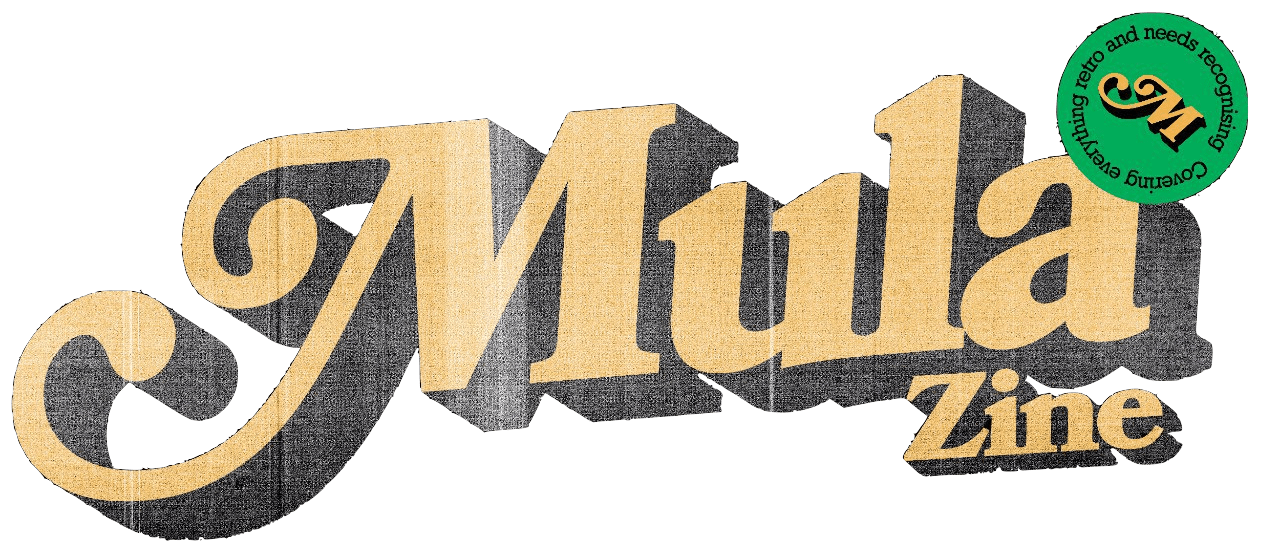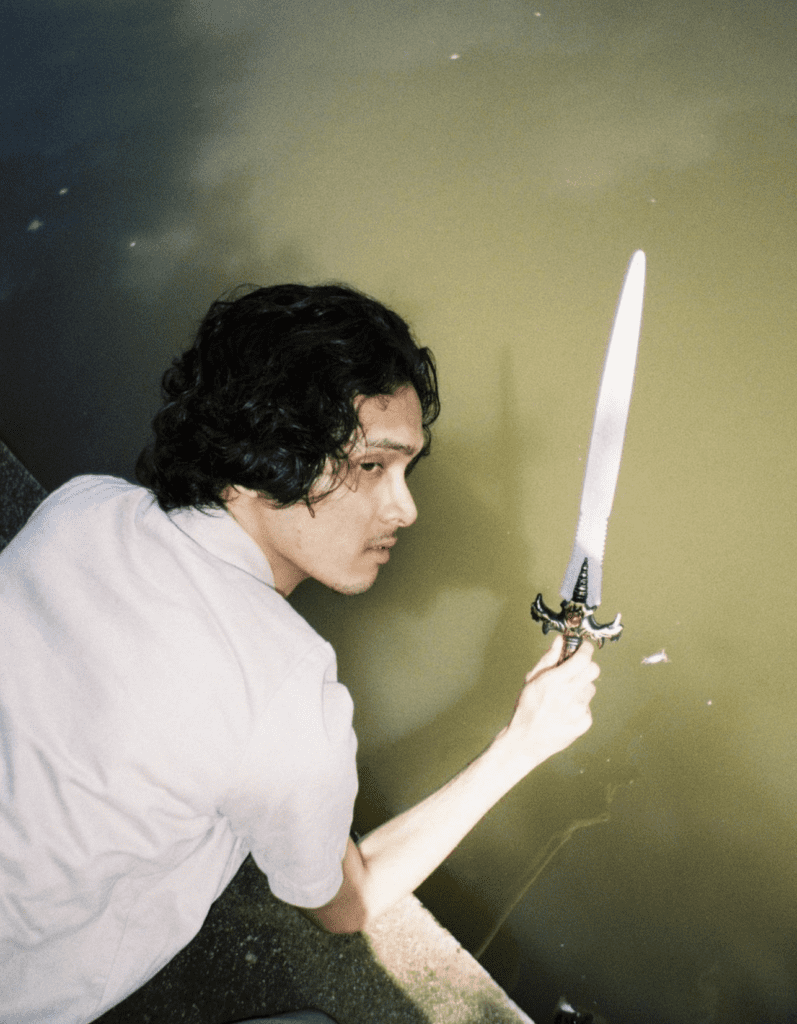That Friday, we took a drive to Bukit Jelutong, where Syukri A. Rahim has spent most of his Earth experience growing up. We allowed ourselves to be transported as we followed the trails and tales of Syukri A. Rahim as he permitted us a glimpse into a fraction of his non-fiction.
“Now it’s called Bukit Jelutong Eco Community Park but it was named and re-named a few times. Growing up here though, people I knew just called it ‘Dua Alam’”, he remarks. Walking through hilly higher grounds and man-made footholes, every light step through the park morphed more and more naturally for Syukri. Currently a part-time assistant lecturer in the Creative Multimedia faculty at a local university, Syukri A. Rahim also moonlights as many titles balancing between pay, projects, and passion. “See, that’s the thing – It’s strange to me when people ask me ‘what are you?’ for example, are you a musician? Are you a filmmaker? Are you a writer first or? To put it simply, I consider myself a musician first because I made my debut EP before I made my first film but recently it has been more towards films, yet at the same time I have some music ventures that I’m involved in and am planning for myself this year. I shift between music and film a lot, depending”.
He takes us to higher altitudes making the cattle and trees we passed along the way look miniature from where we were currently standing. Running up the hill of our unexpected hike with great ease, Syukri A. Rahim presents an adaptable flowing nature in line with his own sporadic geographical history. “We moved a lot growing up. Each one of my siblings was born in different states. Starting with both of my elder brothers, Along was born in Kuala Lumpur and Angah was born in Selangor. My elder sister, Yuna, was born in Penang. My twin brother, Syukor, and I were born in Negeri Sembilan, while my youngest sister, Maya, is the only one who was born and raised where we currently live. A part of Johor, Negeri Sembilan, then Kuantan, Penang – There was a little bit of everywhere in there. My mother is from Negeri Sembilan while my father is from Johor but they met in Kuala Lumpur”.
“Moving a lot, we didn’t really get the opportunity to make lots of friends in one place at once so my siblings and I created our own imaginary worlds. My mother collected encyclopedias and that nurtured our interest in general knowledge of the world. We all had each other as friends. My Angah would initiate creating stories, making up lores and world-building around these imagined landscapes. This was before our introduction or access to internet, it was very primitive”. Syukri A. Rahim leads the way up a hill overlooking strips of streets and surrounding afternoon ambience. “I didn’t really have close friends until I was 14 except from my immediate family”.
Continuously citing family as a pivotal part of his personal journey and way of seeing, it seemed a necessary next step for us to visit his family home that was located in the area. Syukri was both co-pilot and tour guide, assisting and introducing every turn with a tinge of nostalgia. “I’ve lived here for 19 years. Wow, I think 19 years is a long time to live somewhere”.
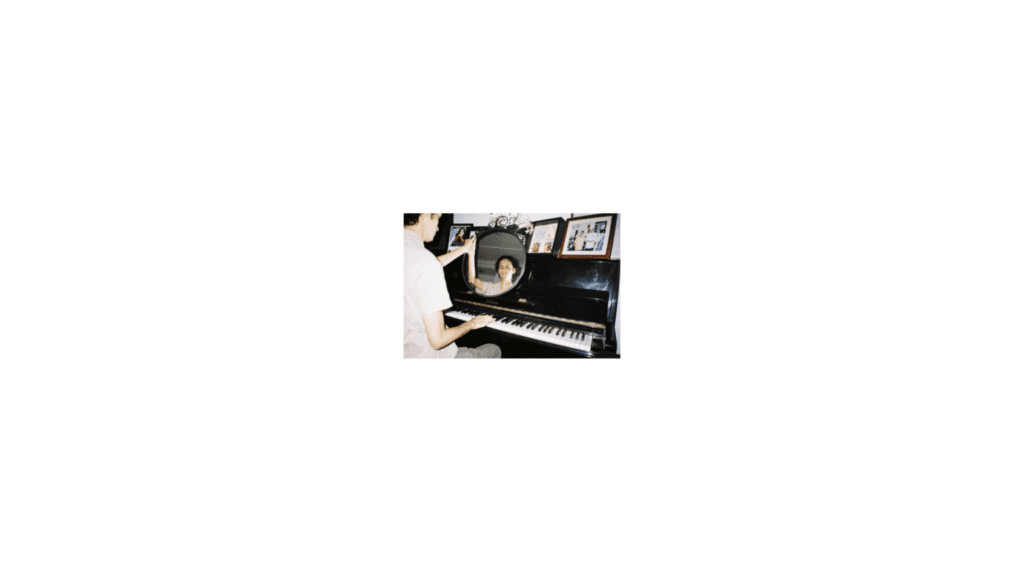
Greeted by the serenity of nature caving a brick house that has nurtured Syukri and his loved ones, it was clear to me how impactful his small world has grown on and around him shaping the entity that he shares through his art. With plants peeking through the metal man-mades and meowing cats walking between our legs, Syukri A. Rahim is at ease as he pours us fruit juices courtesy of his mother, welcoming us and candidly sharing his stories. “I remember vividly, a childhood memory of my mother asking me and all of my siblings what we wanted to do with our lives. I think she was worried, but also, I was six at that time. I gave her a generic answer and said that I wanted to be an art teacher. She asked me if I was sure of my decision and I was like, yes? I think so? I don’t know? I’m six! I never really had a plan or an idea of what I actually wanted to be until I was finishing highschool. That was when I decided to be a filmmaker. Back then, I just really liked telling stories. Again, it’s because of my Angah who really influenced us to worldbuild, create stories and the only way to visualise these stories at that time were through drawings so all of us started drawing at the same time. I have early memories of just wanting to tell stories. For a while, I thought what that meant was for me to become a novelist or a writer, maybe? Until I turned 17 and towards the end of the year I decided for myself that I was going to be a filmmaker”.
A member of the Malaysian production house, Foreground Pictures that consists of friends, filmmakers and artists alike, Syukri A. Rahim attributes these relationships to the organic collaborations that are a part of his creative processes and progress. “Mary is a friend first then I would say a partner in our filmmaking journeys. She’s the founder of Foreground Pictures. The first film released under Foreground Pictures was Jisim in 2019. From there, we decided to use it as a platform where we come as a package and these are the curated voices that we want to showcase so that everyone gains exposure as a whole. Mary and I believe that a single drop of water wouldn’t impact as much as a wave. That requires a frontier of people and that’s what we are trying with Foreground Pictures. Mary Grace Liew, Eunice Alexander, Chan Teik Quan and myself are frequent collaborators in Foreground Pictures who are always trying to come up with things for Foreground. One of the ideas and plans we have for 2023 is that we want to make short films for every festive season. We’ll see how that goes”.
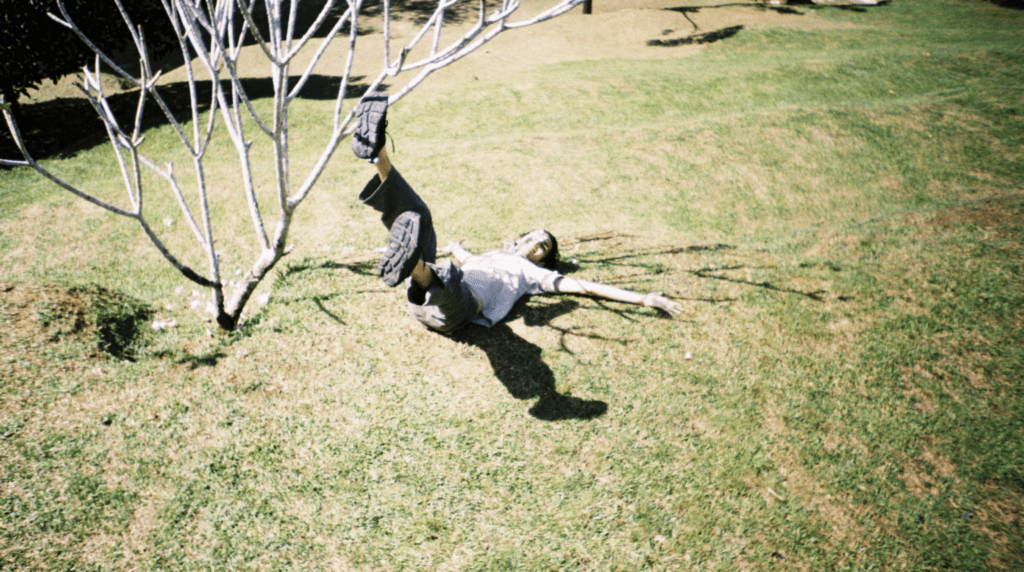
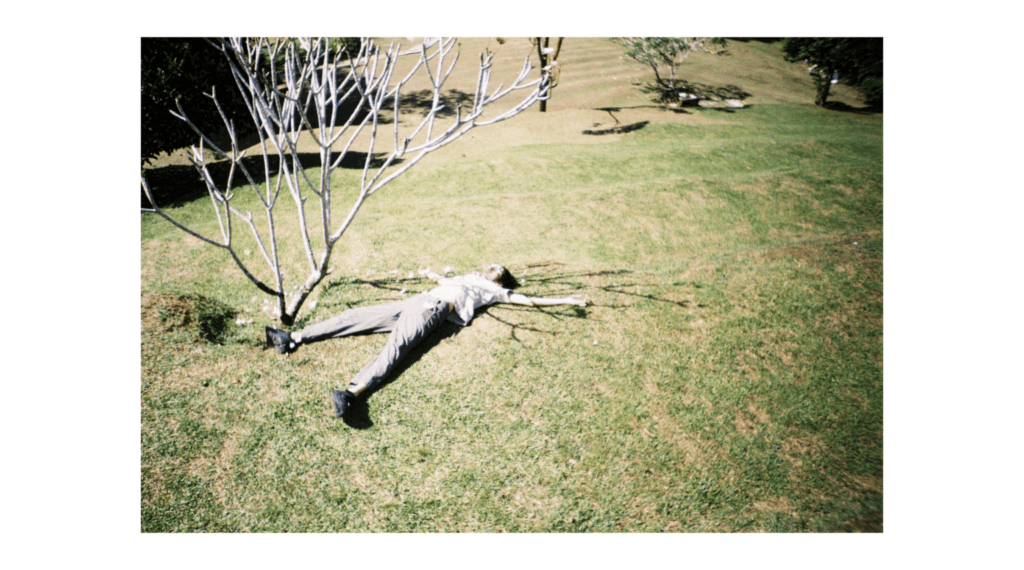
A piano is nestled on the ground floor of the living space, decorated with framed pictures of smiling anatomies and glowing achievements. Syukri A. Rahim sinks into the duet bench and plays us into the afternoon. Floating notes embrace the four walls and the melodies melt into the air. One multifaceted artist subconsciously serving both sights and sounds, engrossed in his element. “I still listen to bands like Nightwish that I listened to as a teenager because I’m intrigued by the fantasy and lore behind their lyricisms. This was the same era that in film, I was a fanatic of Lord of the Rings or Harry Potter. I was never actively a part of any subculture until 2018. Before that I was just in my own bedroom, reading, listening to music and experimenting with making my own. The things that I liked or like, for example, mysticism or things that are unknown comes naturally to me, and not that I was pushed or absorbed into any specific bubble of culture. I never really made music until 2016 and I never really made a film until 2019 so I was never actively a part of any scene. If you were to talk about what impacted me, it would be fantasies and worldbuilding. During the early stages of my writing, I would create fictional maps and I would write stories based on the maps that I created. That process built my interest in environments and surroundings that I apply in my work now. Building the world of a film, the world of a story rather than it being just about the characters”.
An oddball during his college years with his written scripts never being selected to be expanded for the first two years of college, Syukri wasn’t one to make excuses and feel too sorry for himself for too long. Syukri ventured into the unknown territory of other mediums within film to experiment his expressions. “My scripts and writing were never picked, they didn’t like the way I write. I had to find an alternate source other than writing and picked up post-production sound. I was exploring the studio that was available on campus and started to hog it as it was sadly not used much. That’s when I started music, which is why I say that I started as a musician first. I released my EP that same year I started making music. How I started was just out of curiosity and I just want to do it for the sake of doing”. This unshaken unorthodox character proved itself to be the catalyst in his budding career as his films received esteemed recognition including Dari Alam Selari that was selected as a part of the ‘Whose Hand Is Playing That Sound?’ programme curated by Chloe Yap Mun Ee for SEA Shorts 2022 and Story 2: Regardless, I Still Long For You, that was shortlisted as the Top 10 in BMW Shorties 2022, taking home the award for Best Screenplay at the ceremony held at REXKL last December.
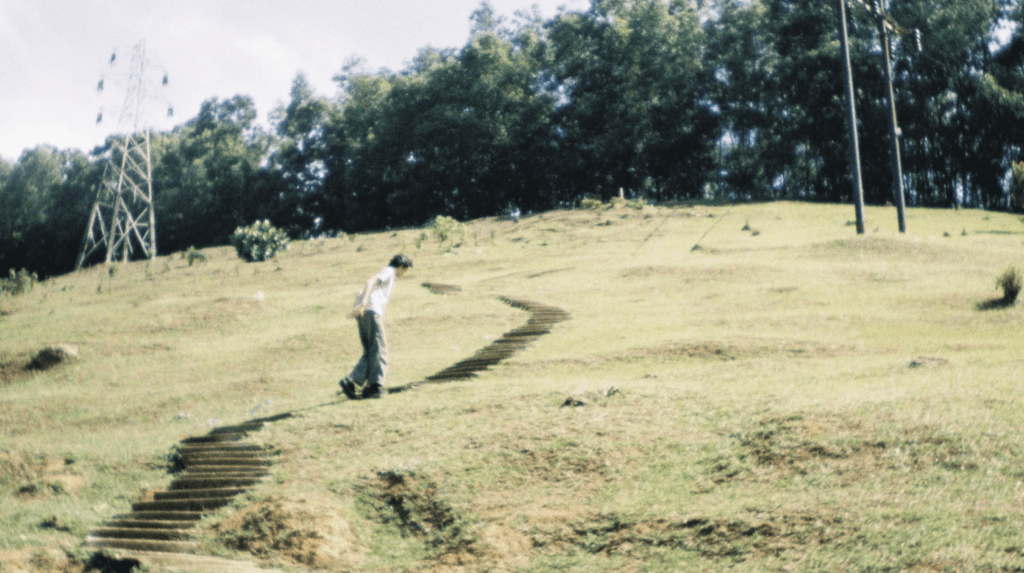
Unapologetic in his executions and understanding of every decision in bringing to life his vision, Syukri A. Rahim is unrestricted in his observations. This boldness is platformed not only through his balance of mediums, but also through thorough ethnic explorations. Coming from a multicultural upbringing in his home country, Syukri is one to appreciate while immersing himself through the availability of cultural exchanges in art and personal relationships. “I have two explanations as to why I was drawn to make my films in Chinese – The conscious and the subconscious. The conscious is that there are sentences and dialogues that I would like to hear coming out of a person whose mother tongue is the Chinese language. For example a line like, “But why would he want to leave me?”, which I don’t know how to say in Chinese so I would write it in English and I would have to have it translated or for an actor to say it, which is one of the ways that I learn the language better. Subconsciously, I was having a conversation with Chan Teik Quan who commented that the film was very honest except for the fact that it was written in Chinese, and he asked me my reasoning for it which made me think deeper about why exactly I made that decision. To me, it is because the films that I really, really like and that shaped my creative perspectives are mostly films that are in languages that I don’t know. I want that same drive towards people who watch my films and even for myself, when I watch my own films. Currently, I am working on a script written in a completely made up language so that nobody can understand at all and just feel the way it’s delivered rather than understanding what is being said. There are already Malay directors who are making films in Chinese and Chinese directors making blockbuster films in Malay. I think we should have that more in Malaysia because it’s so good. The world outside of Malaysia is raging about cultural appropriation but I’m not sure if it applies to Malaysia though I completely understand when people feel that their culture is being appropriated, I do sometimes feel that too. To me, the way artists interpret or choose to make something shouldn’t even be a question. I think it’s okay for anyone to make anything any way they want it and it’s just a matter of respecting and acknowledging both the medium and the culture”.
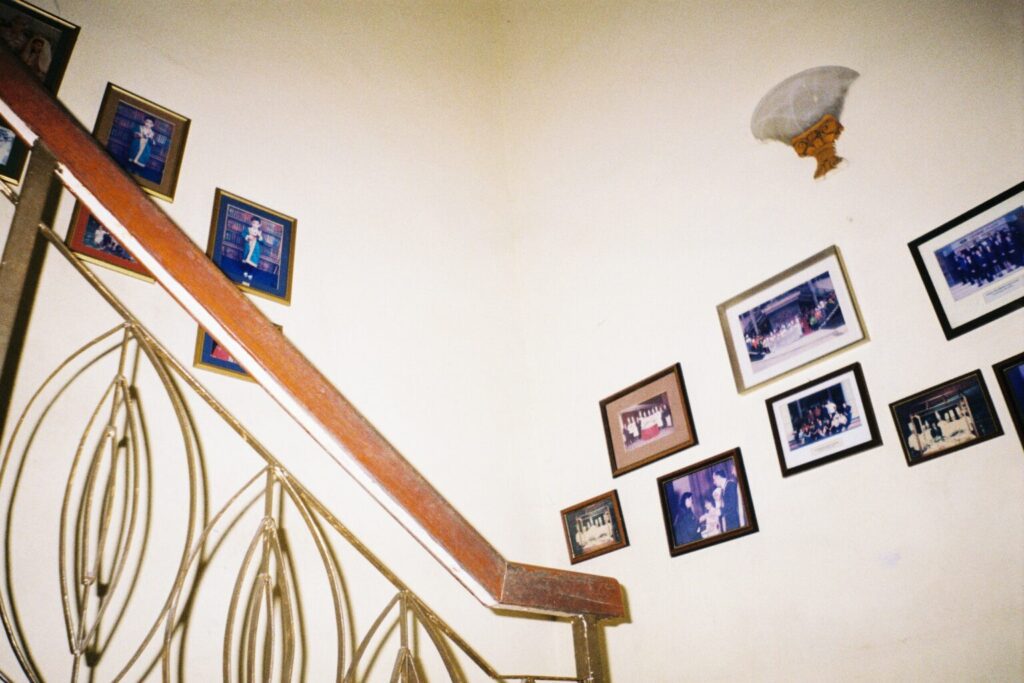
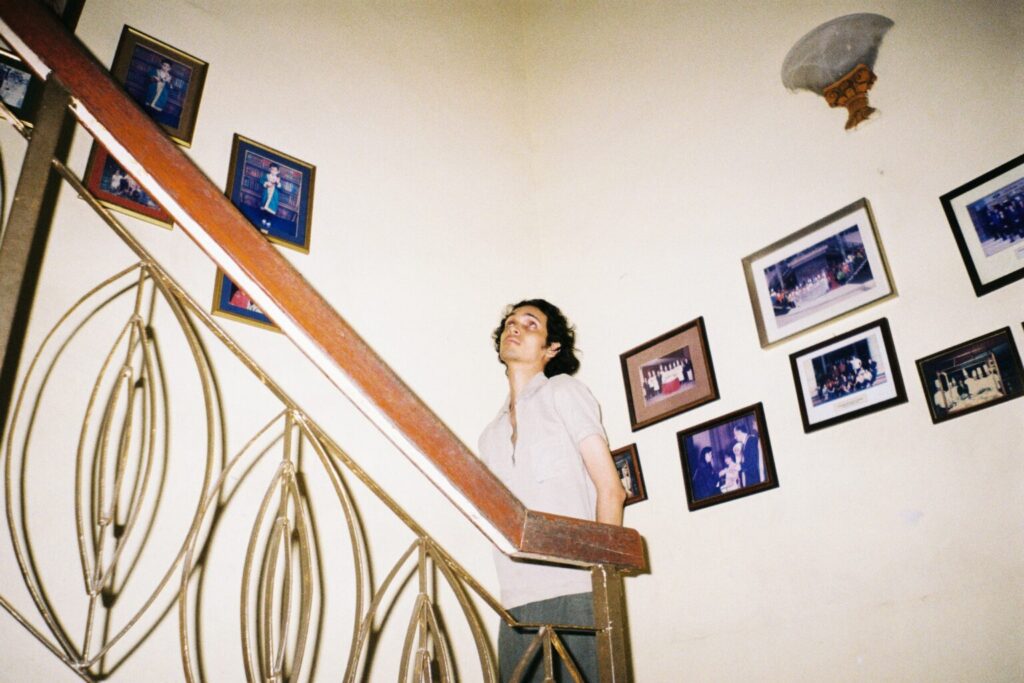
The conversation further introduces us to Syukri A. Rahim’s approach and beliefs regarding both his process and the outcome. Being an artist in the 21st century, it is almost impossible to not also be a user of new media in creative production in one way or another. Syukri stands out to us as a creator that is born in just the right era as he champions these advancements to his own advantage. “There is something I always share with my students and remind myself too, that is that the technological advancements in this era has allowed us to be more explorative, allowing us to experiment more and cost us less. I think technology has created rooms for people with specific niches. In music for example, the way that streaming platforms work now, you can find thousands of music to your own liking without having to succumb to just pop music. I can download and work on things from my laptop. In film, it’s easier to shoot any film that you want to shoot. You can just pick up your phone and experiment with it. I’ve made a film that didn’t even require shooting at all that is ‘Dari Alam Selari’. I just did it with stock footage and my personal library of videos which I don’t think could be possible as easily if my medium was film celluloids. It’s the same with writing as well, I can explore all these different types of stories by reading about mythologies or any other subject and write about it based off of my research done completely online. It’s crazy, it doesn’t even require you to have a physical book which I think is more eco-friendly in some sense. There are some people that would say social media has made everything accessible and because of that, we have things easier though I would say that it’s actually harder now. It’s just my personal perspective that it used to be that people could be creative because they could afford to, but for my generation and for the people younger than me although it is more accessible, it’s harder because there is so much of it, you have to stand out in the middle of an ocean compared to having to stand out in the middle of a lake. I think it would take me longer to get to where I am now without these technological advancements”.
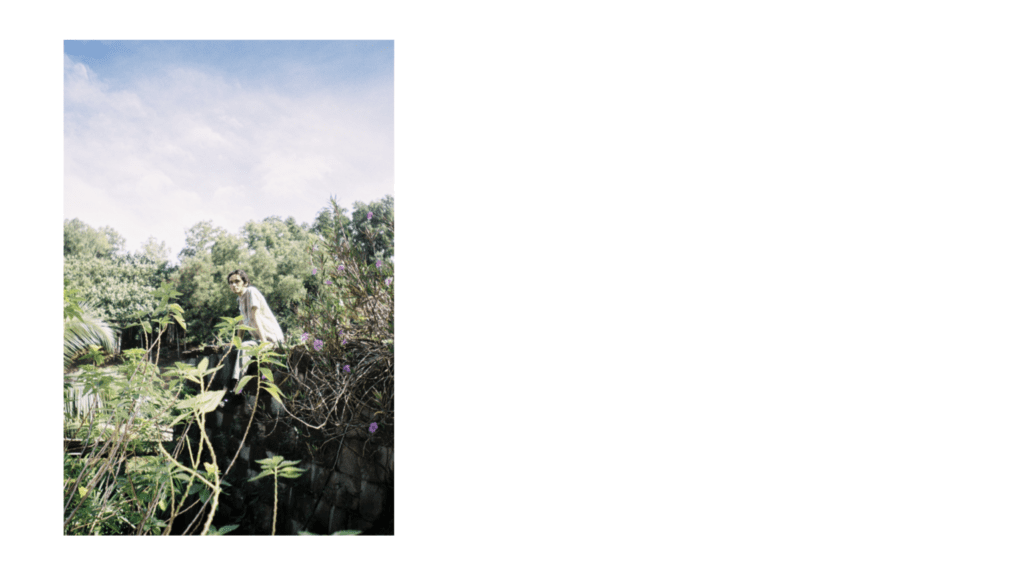
Syukri chooses to be informed through this accessibility and in soothing his own consistent curiosity. Though currently based in the bustling city of Kuala Lumpur, Syukri remains unbothered by the calamity of this climate and is loyal to his unconditional love of unrestrained daydreaming. “Even after experimenting with the many ways that I want to tell stories and doing things that I’ve always wanted to do, I still want to create something new. A lot of the time, I read and watch a lot of non-fiction. I had this conversation with my friend and we both agreed that we don’t really like to watch films. We like the aesthetics of films but most of the time we would watch things like 50 minutes worth of documentations on historical buildings that are still intact, those kind of things. For me, my practice is detaching myself from the art form in order to get inspired. My form of ideation is daydreaming a lot, yes, but how do I construct those imaginations on a fundamental platform? I try to have this discipline to always read up on new things. Not to force myself, but to inform myself as well as dwell in the real world via the internet. Again, it’s because of how accessible information is now. I try not to be informed only by the surface, instead I invest myself on specific topics to be able to tell stories through the lens of that particular subject and expand on the non-fiction aspect of the world. In a recent script that I developed, it is a sort of tribute to our ancestors and their spoken languages. Right now, I’m excited to explore the root of communication and our languages. Like how do we as humans manage to come up with words and sentences? What are the roots? I think I’m in my language era”, Syukri notes with a nod.
“I plan on having a small screening of my works in 2023 that will double as a crowdfunding platform where I will be announcing a film and a trailer by the end of it but that’s something I’m still working on”. His trust towards his processes are amplified through his no signs of stopping. Tying his shoes on the red brick floor of the front porch as he ushers us into the luminous afternoon, visibly composed with the path that he is constructing for himself. One Syukri A. Rahim is an electrifying force of the present moment taking steady steps towards an unfixed future with a solid spine, and he’s just getting started.
